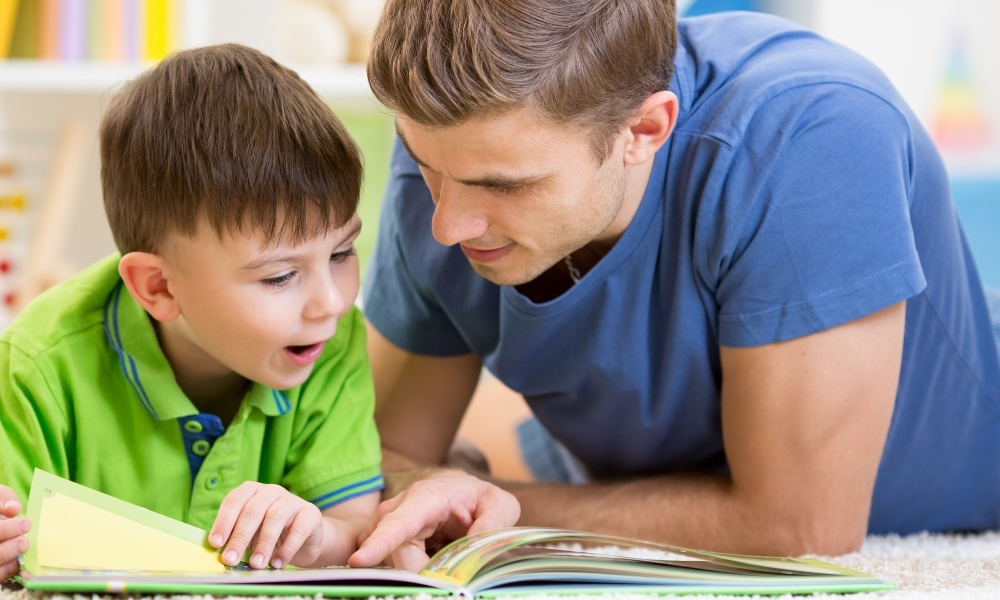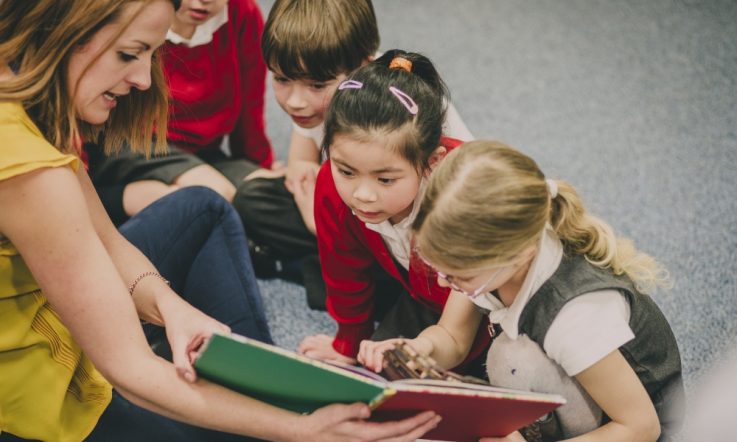Home support of children’s literacy skills in the early years is a well-known indicator of their reading progress at the start of school. A new study has explored how different reading experiences at home have an impact on children’s continued reading development at school.
The small-scale study from the University of Melbourne found that factors such as the child’s own interest in language, frequency of reading with parents, and intimacy with parents, are potentially stronger indicators of reading progress at school than Socioeconomic Status (SES) of family background.
Discussing the findings in the Journal of Early Childhood Research, Honorary Professor in the Melbourne Graduate School of Education Bridie Raban reports strong relationships between family interest in reading and their children’s reading at age five. ‘In particular, hearing stories read aloud appears to enable these children to bring appropriate expectations to their reading activities in school,’ she writes.
‘Knowing about books, what they contain and their style of language use and form, gave these children an advantage when they began learning to read at school.’
The study selected 10 girls and 10 boys (across four SES classes) from a larger pre-existing sample of 125 families from a study measuring children’s English language development. Audio recordings from the children’s home experiences prior to school were analysed and parents were interviewed about their engagement in reading activities and experiences with their children. Each child’s reading level was then assessed on starting school.
Raban says two key research question were identified:
- What were the extent, range and impact of these children’s reading experiences in their homes before they started school?
- How significant was the impact class of family background on children’s reading opportunities and experiences?
The academic says, interestingly, the study found that ‘SES classification alone did not necessarily predict how well these children did or did not perform on reading assessments at the start of school.’
For the group with the highest reading progress from home to school, Raban shares: ‘These six children represented all four of the social class groupings included in this study. In each one of these homes there was evidence of books and writing materials owned by the parents and their children, and regular library visits were made by these families… These children were reported by their parents to ask questions about words, word meanings and how to spell them, and to remark on words they found in the environment.’
The findings also draw an important distinction between parents’ support of early literacy development as a ‘chore’, compared to a pleasurable activity in which intimacy and emotional comfort could be provided. ‘Importantly, reading stories to their children was not seen by these parents as a duty, it was a pleasurable and rewarding experience for them and gave opportunities to express their love and care.
‘Children also found great security in the mutual sharing and physical closeness, both of which provided a spur towards re-enacting the ‘reading’ of favourite books when they were alone.’
Raban concludes that building a strong conceptual knowledge of language at home, as demonstrated by the group with the highest scores in the study, is a precursor to the phonological and letter (‘item’) knowledge.
‘If the school curriculum begins with a strong focus on item knowledge,’ they write, ‘those children who have unstable or barely conceived conceptual knowledge will make little or slow progress.’
The academic acknowledges several limitations to the small-scale study, including having no audio recordings of bedtime stories ‘which are considered a particularly significant aspect of children’s early experience of story-book reading and sharing’ but she adds the transcripts offered a unique opportunity to find out more about children’s real-life experiences before starting school.
References/further reading
Raban, B. (2022). Strong conceptual knowledge developed through home reading experiences prior to school. Journal of Early Childhood Research. First published online 10 March 2022. https://doi.org/10.1177/1476718X221083413
As a primary teacher, what approach do you take to developing students’ literacy, especially for a class of students starting school with varied reading skills? And, reflecting on the importance of building literacy skills at home for school readiness, how can you work with families to meet students where they are at?



